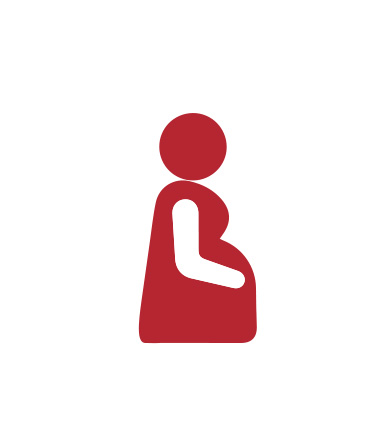
‘TrialBlazers’ involved in Cross-border health intervention research
The Cross-Border Healthcare Intervention Trials in Ireland Network (CHITIN) is a unique cross-border partnership between the Health and Social Care Research & Development Division, Public Health Agency in Northern Ireland (NI) and the Health Research Board in Republic of Ireland (ROI).
CHITIN aims to improve the health and wellbeing of people living in Northern Ireland and the border region of Ireland (Donegal, Leitrim, Sligo, Cavan, Monaghan, and Louth) through cross-border research collaborations. The research is looking at key health challenges such as mental health, obesity and medicines management.
The Pragmatic Lifestyle Pregnancy and Post pregnancy Intervention for Women with Overweight and Gestational Diabetes Mellitus: (PAIGE2) is one of 11 CHITIN studies focusing on maternal health. Research volunteers (TrialBlazers) are the cornerstone of PAIGE2, whether taking part in the study, advising on study design, or promoting the value of this research to others, each Trailblazer has contributed at every stage to the continuing success of the PAIGE2 study.
PAIGE2 is a randomised control trial developed for women who have been diagnosed with Gestational Diabetes Mellitus (GDM). GDM is defined as high blood sugars during pregnancy and affects around 18% of pregnant women. Women with previous GDM have a 50% increased risk of developing it again in any future pregnancy and are seven times more likely to develop type 2 Diabetes Melitus (T2DM) in the future.
However, there is good evidence that lifestyle changes (diet and physical activity), can reduce the development of type T2DM in people at high risk, such as women with previous GDM. The postnatal period (shortly after pregnancy) is an ideal time for women to make these changes. The aim of this research is to design, deliver and evaluate a 12-month, pragmatic, theory driven, lifestyle intervention programme.
The PAIGE2 study builds on pilot data, including feedback from focus groups. It has been specifically modified to reflect the information gained from participants and in particular the challenges faced in the postnatal period. As a direct consequence of this feedback a particular aim of PAIGE2 is to make it easier for women to take part, and to remain in this research study.
To date over 260 TrialBlazers have enrolled onto the PAIGE2 study, almost half of these participants having already completed the trial with the final participants due to complete by January 2023. On completion of the trial, participants are invited to take part in focus groups to further explore the needs, knowledge, and experiences of women in relation to adoption of a healthy lifestyle to reduce the risk of future type T2DM. If the results of PAIGE2 are positive, this study could have major public health implications for the prevention of future GDM and subsequent T2DM. This research wouldn’t be possible without the input from TrialBlazers, their participation could ultimately contribute to transformation within Health and Social Care, with PAIGE2 being translated into routine clinical practice.
The National Institute of Health Research (NIHR) Be Part of Research campaign leading up to International Clincial Trials Day 2022 is called 'TrialBlazers' - celebrating a community of research volunteers -the thousands of people who take part in, and support trials and studies all over the UK.
The campaign takes place from Monday 16 May to Sunday 29 May 2022, and NIHR will be marking International Clinical Trials Day as part of the celebrations on Friday 20 May.
For more information visit: https://bepartofresearch.nihr.ac.uk/trialblazers/ #BePartofResearch

